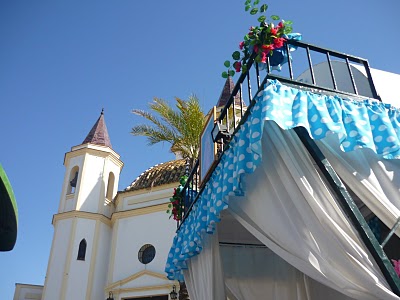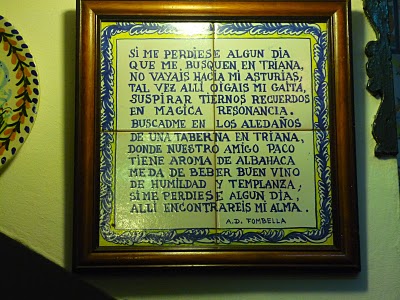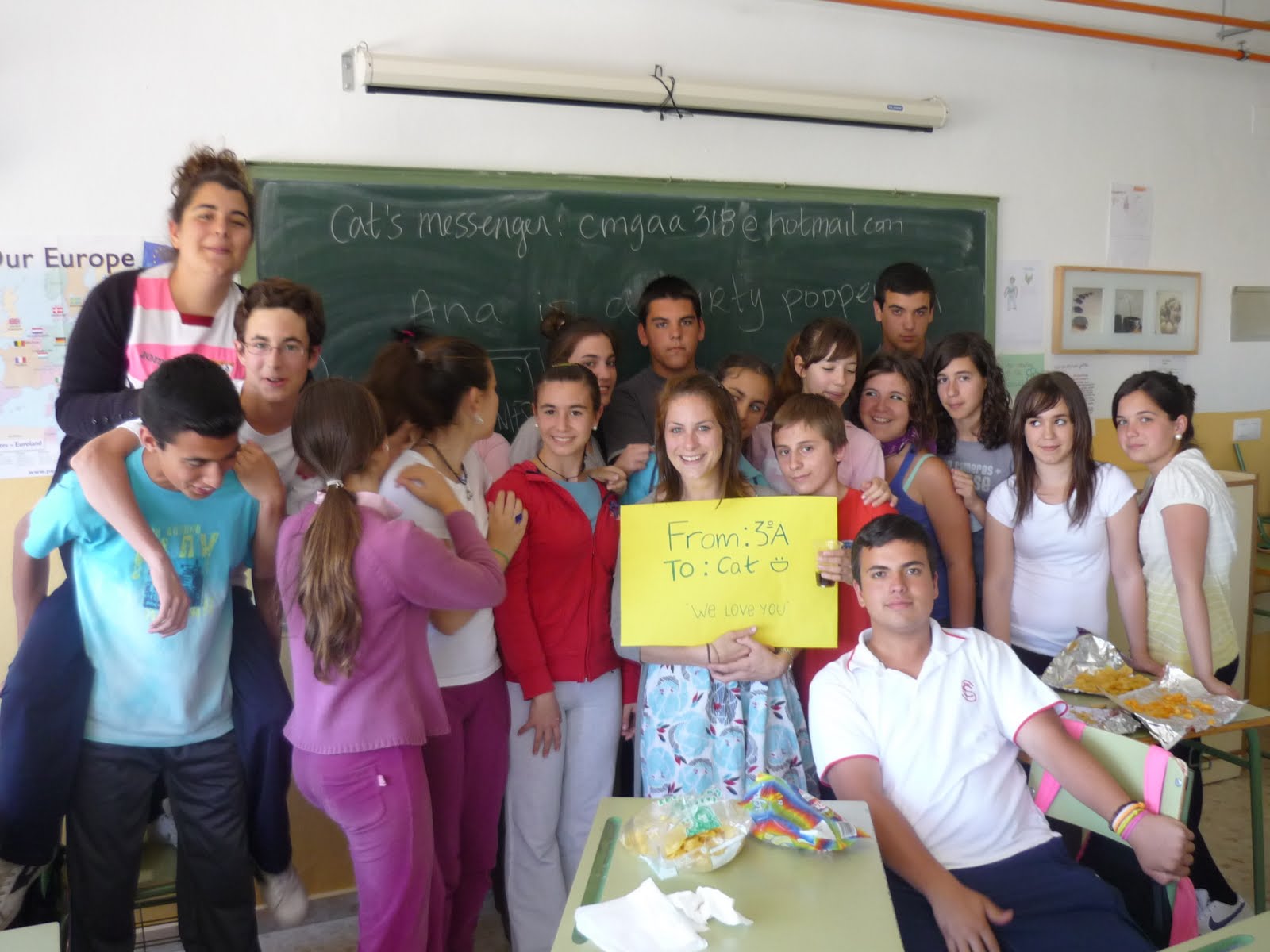 3ºB
3ºB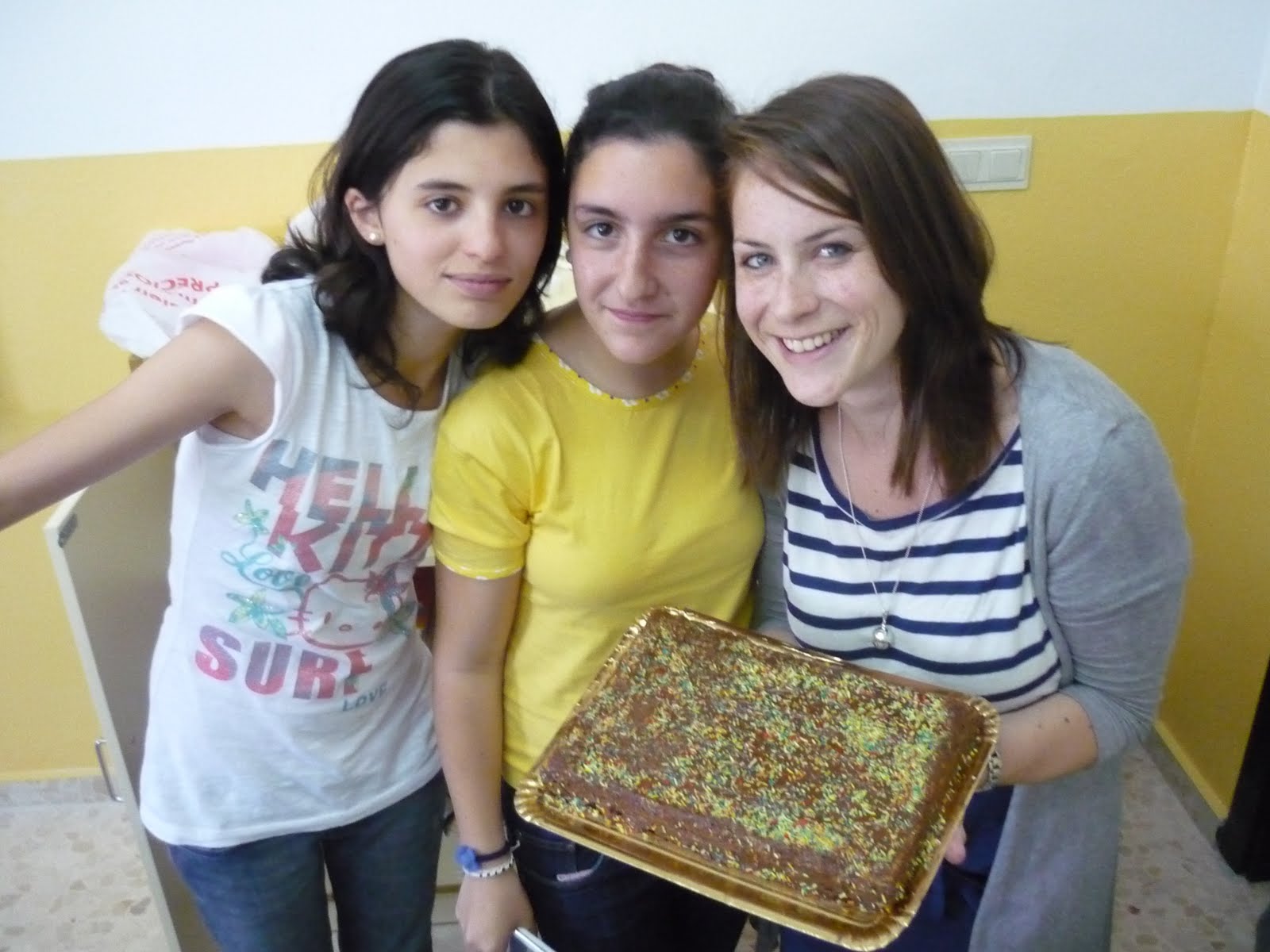 Sara and Ana from 1ºbilingual and they cake they made me
Sara and Ana from 1ºbilingual and they cake they made me
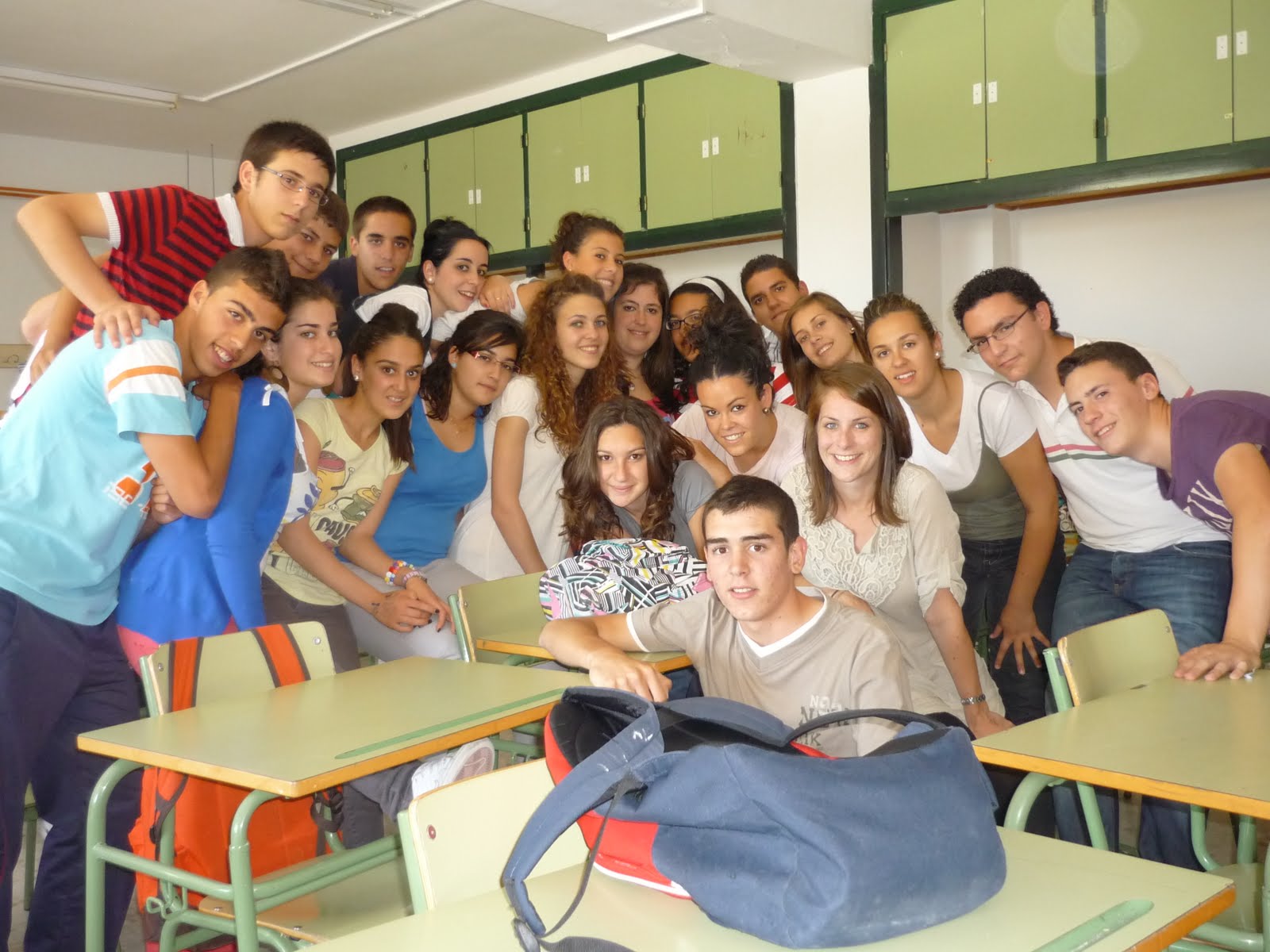 4ºA
4ºA
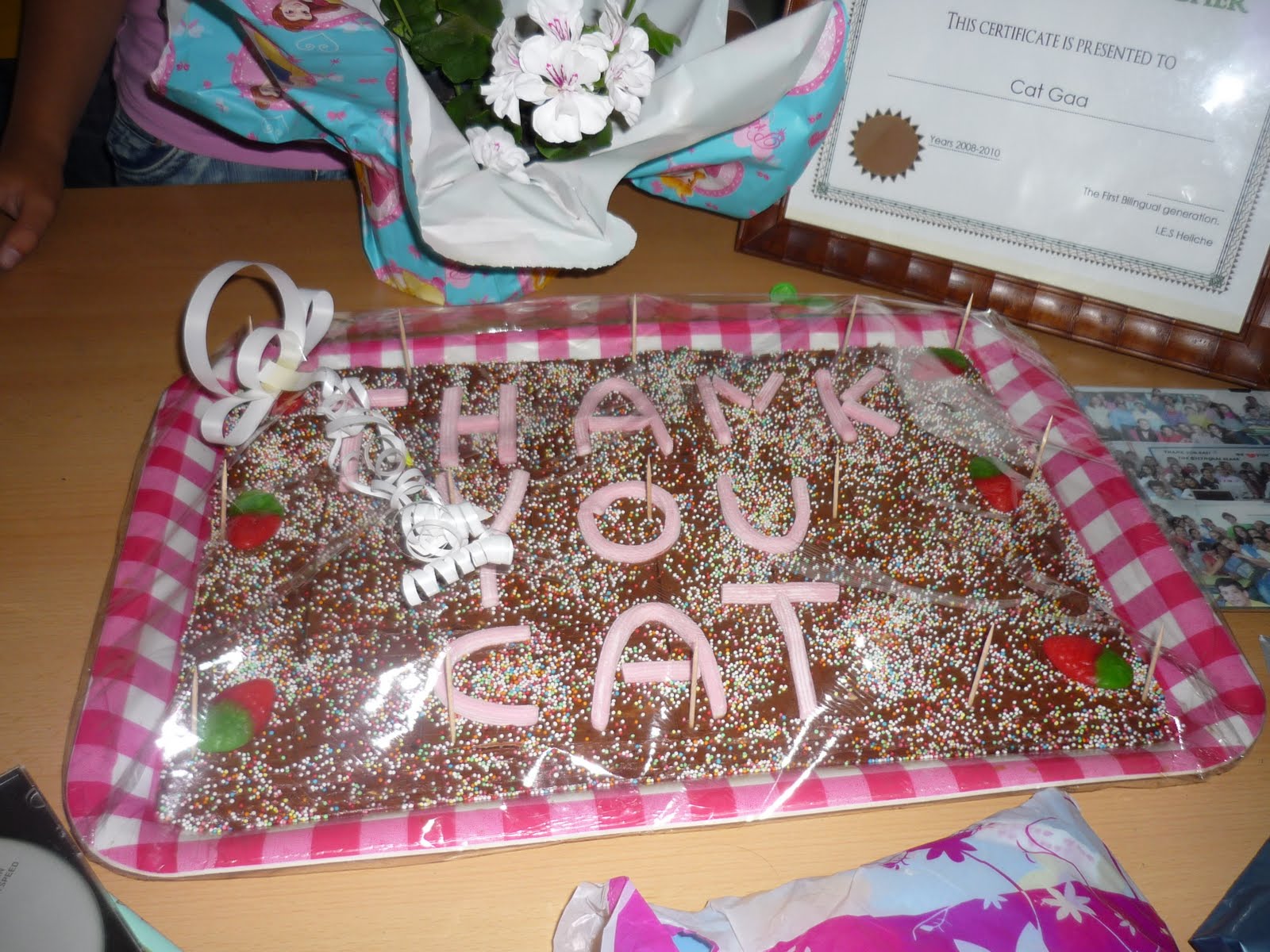
Felisabel drove me home, as usual, and she told me she had been thinking of me the night before. How so, I asked? She went with a few friends for tapas in Plaza de Gavidia, and sat near a group of two american girls and several Spanish guys. One was lively and laughing, well-dressed, and continually ordering beers and chowing down on tapas, while the other sat silent and sulking. She grabbed her friend’s shoulder and said, “That´s the one I have been telling you about. Esa es mi Cat. That´s my Cat.”

